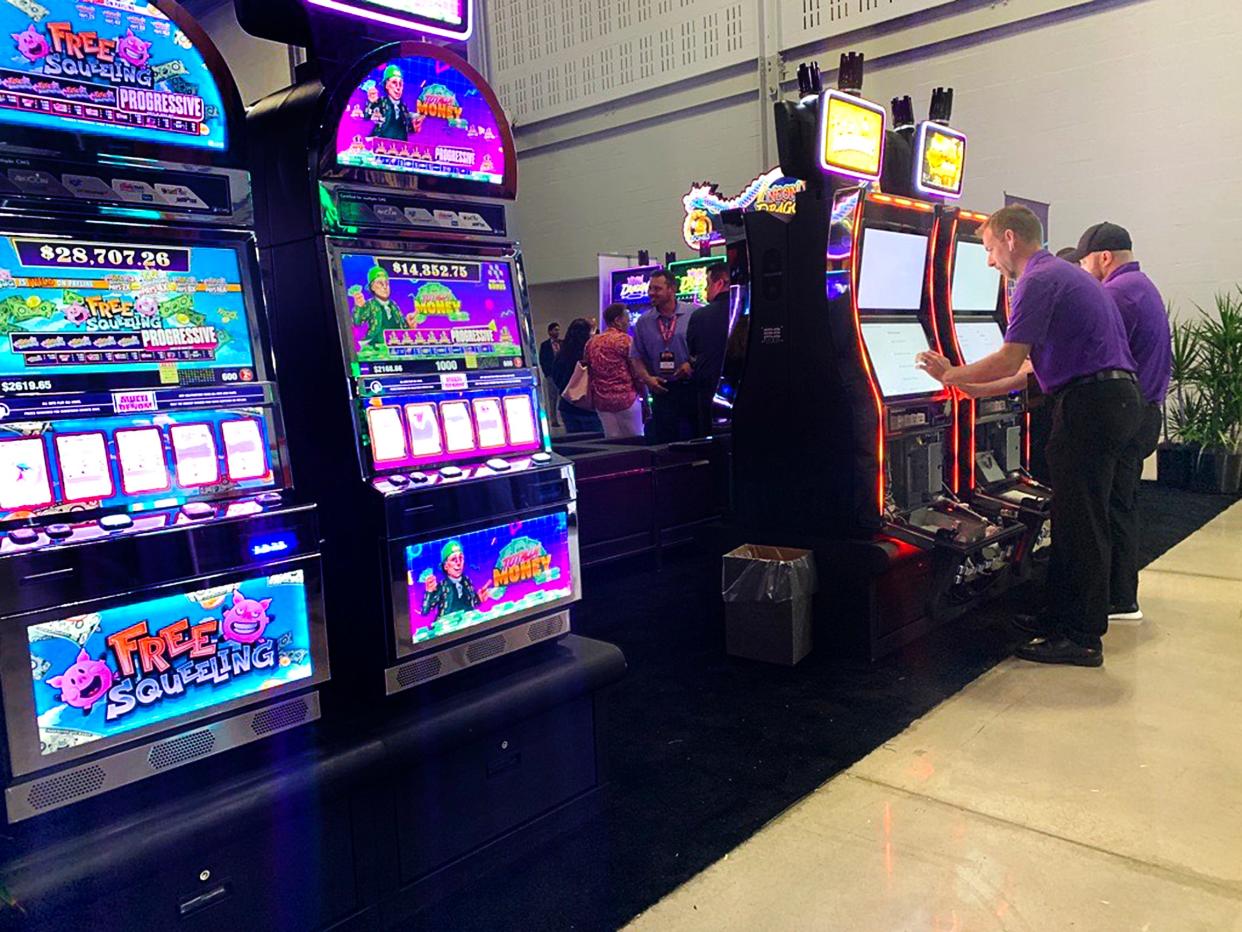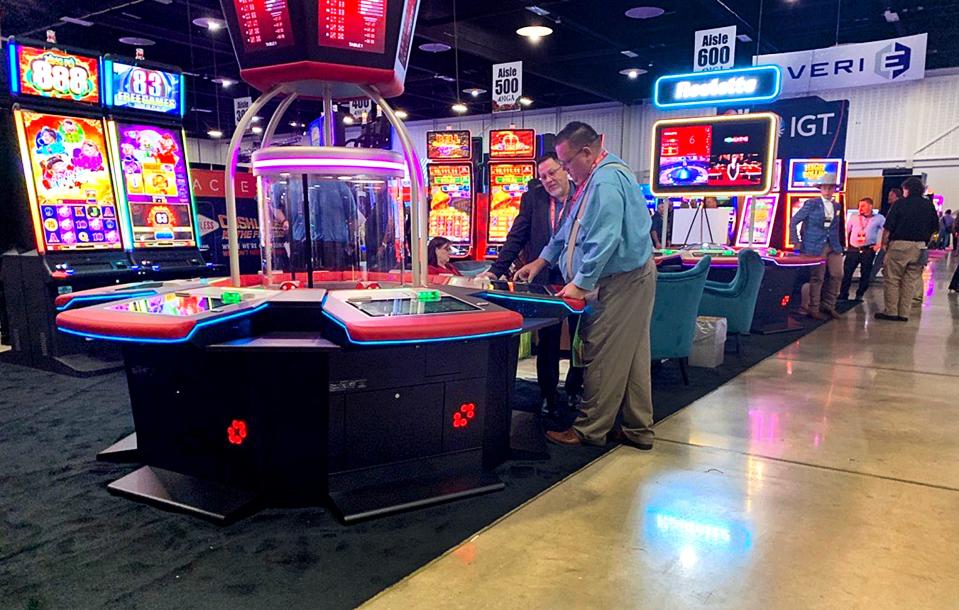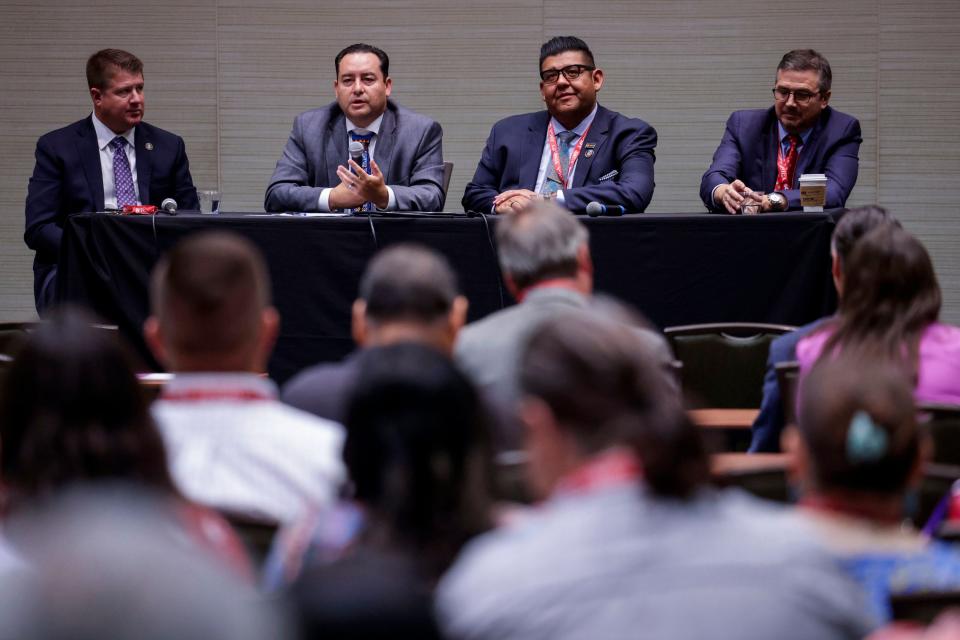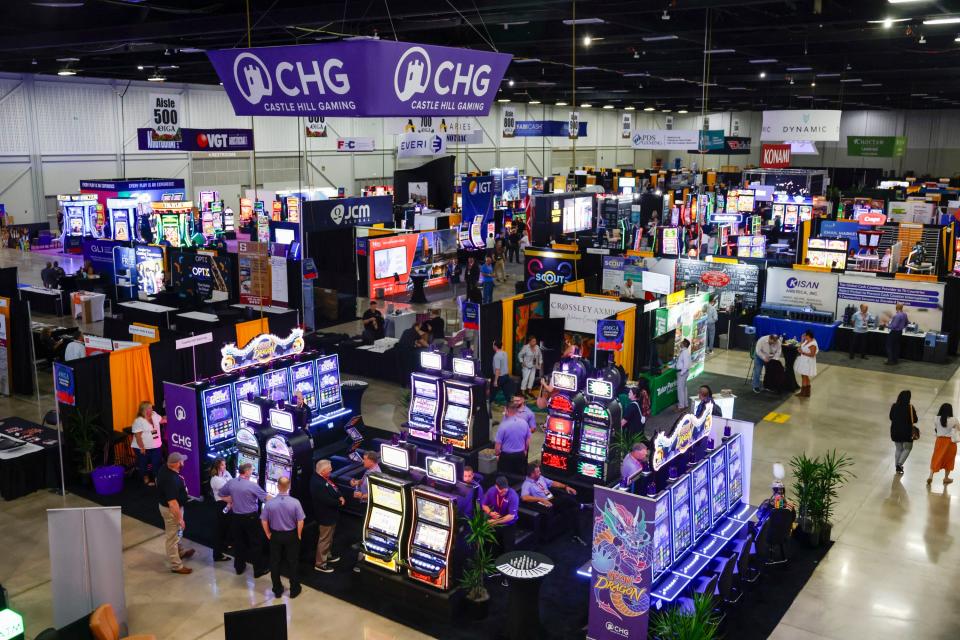No timeline for sports betting in Oklahoma, tribal gaming officials say

- Oops!Something went wrong.Please try again later.
Oklahoma’s tribal gaming industry is preparing for sports betting, but no one knows yet when that day might arrive.
The uncertainty — and how to keep growing despite it — have been two of the biggest points of discussion at the industry’s annual convention, which started Tuesday and continued through Wednesday in Tulsa.
Even as dozens of other states legalize sports betting, it hasn’t gained a foothold in Oklahoma amid a broader stalemate over state-tribal relations.
“We have an impasse with the chief executive of the state of Oklahoma,” said Matthew Morgan, chairman of the Oklahoma Indian Gaming Association, which organized the event. More than 2,200 people, including leaders of more than a dozen of the state’s 39 tribes, attended.
Oklahoma has one of the largest tribal gaming industries in the United States, with more than 130 casinos operated by nearly three dozen tribes. The profits are often the biggest funding source for tribal nations, which use the money to pay for government programs, services and economic development in their largely rural areas.
“It’s just not all about gaming when we do something,” said Gov. Reggie Wassana, of the Cheyenne and Arapaho Tribes based in Concho. It’s about employment and providing other needed amenities in small communities, he said.
More: Talks to expand betting in Oklahoma have stalled. So 3 tribes are forging a different path
Future of legalized sports betting at Oklahoma casinos remains unclear
Efforts to legalize sports betting at casinos have failed in the Oklahoma Legislature for two years straight. Sponsors have cited a lack of consensus among the governor, the state’s top negotiator, and tribal leaders, whose governments hold exclusive gaming rights in Oklahoma under a voter-approved agreement.
Morgan said those negotiations aren’t happening.
“At what point do we get it? I think that’s a question for people on the other side of the table,” said Morgan, who is a citizen of the Chickasaw Nation and a descendant of the Choctaw Nation.
It is unclear whether talks will progress under Gov. Kevin Stitt, who took office in January for a second term. He has routinely challenged state-tribal agreements, including the central gaming compact.

Under the agreement, tribes pay the state monthly fees in exchange for exclusive rights to operate certain types of electronic and table games. Oklahoma receives 4% to 6% of revenues from Class III gaming, mainly slot machines with random odds, and 10% on table games.
Those payments increased for the third straight year to $200.5 million during the state’s last fiscal year, which started in July 2022 and ended in June. But unlike the previous two years when payments grew at double-digit rates, the past year’s tally increased by 5%.
More: How tribal leaders are reviving a historical advocacy group to change Oklahoma
Morgan said the industry is still finding its way after the pandemic and navigating what the market can bear. He also said more tribes are updating properties they already operate, rather than building new ones.
Wassana said he expects renovations to increasingly focus on family friendly options, such as water parks, movie theaters and bowling alleys, to open a new market for existing casino-hotels. Las Vegas has transformed in a similar way, he said.

“I used to see a room full of machines at one time,” Wassana said, “and now I see casinos are in the food and beverage and entertainment (business).”
Sports betting also is viewed as a way to attract younger customers and open the door to mobile betting. But sports betting remains expensive to set up and maintain, and operates with thin profit margins, several industry experts said at the convention.
Morgan said any talks with the state would need to account for the different economic realities of tribes. The Chickasaw and Choctaw nations draw large chunks of their customer bases from Texas, while other tribes are limited to rural parts of Oklahoma without heavy traffic.
Stitt has said previously that he wants to ensure any sports betting agreements are fair for the state. He’s criticized the existing gaming compact as unfair and negotiated standalone agreements with four tribes.

Although the Oklahoma Supreme Court rejected the deals nearly three years ago, they remain at the center of an unfolding political dispute.
Attorney General Gentner Drummond is trying to force the governor to drop his defense of the agreements in a years-long federal lawsuit. Drummond filed court papers in July to take over Oklahoma’s role in the case. The governor’s attorneys, who work for a private law firm, have asked the court to deny Drummond’s request.
Joe Bunch, chief of the United Keetoowah Band of Cherokee Indians, signed onto one of challenged agreements. Bunch said he felt like his tribe had no other options after its Tahlequah casino was shuttered in 2013 amid a legal dispute over land status.
Bunch attended the gaming convention to make contacts in hopes his tribe may someday be able to rebuild its casino.
“Gaming is the catalyst for other things,” he said. “It’s the catalyst that allows you to build, add to your resources and programs, add to your educational funds.”
Read more:
Molly Young covers Indigenous affairs. Reach her at mollyyoung@gannett.com or 405-347-3534.
This article originally appeared on Oklahoman: Future of sports betting in Oklahoma remains unclear

